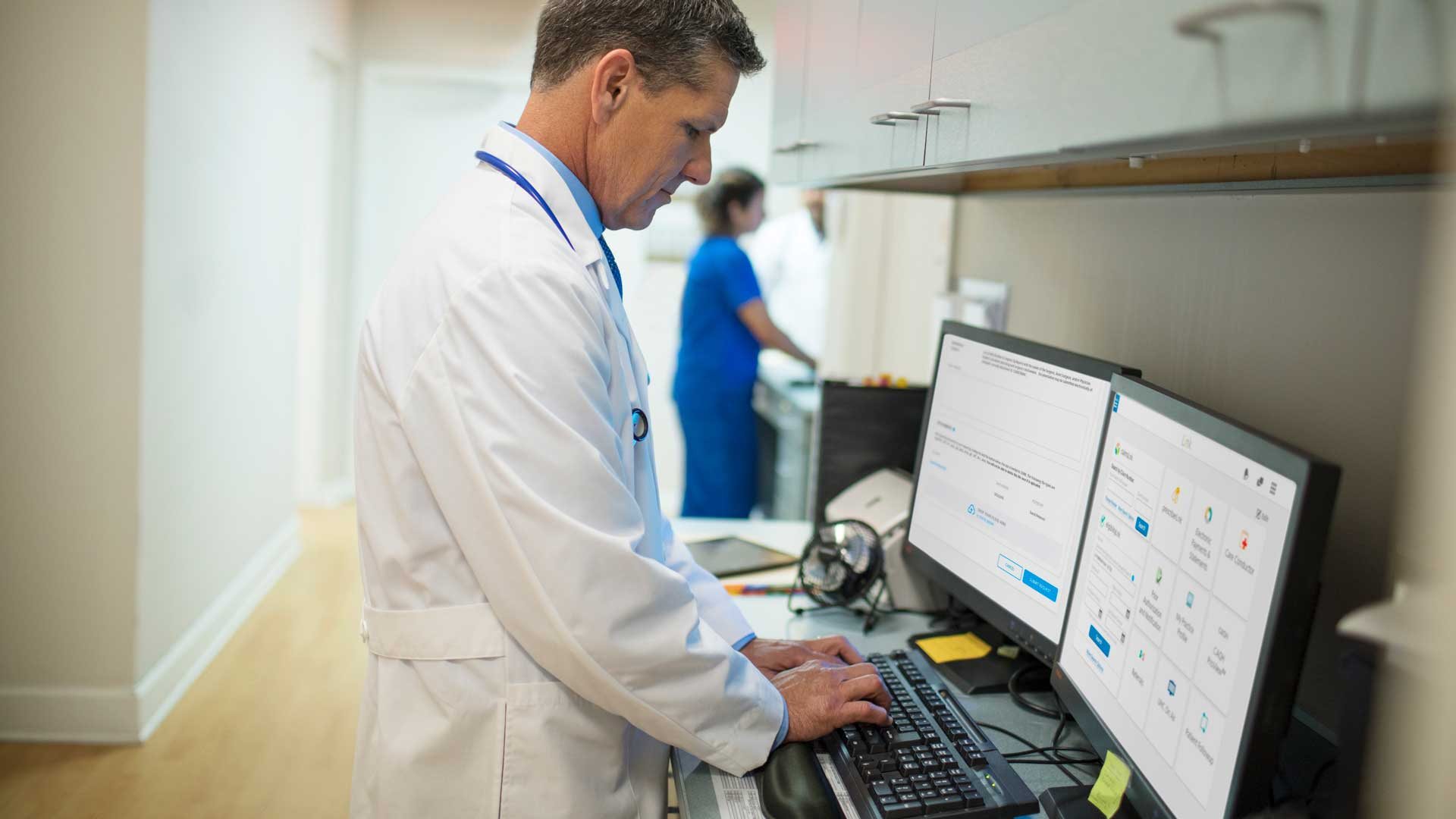| |
| |
| |
| Presented By Optum Rx |
| |
| Axios Vitals |
| By Tina Reed · Apr 24, 2023 |
| Happy Monday, Vitals readers. Today's newsletter is 874 words or a 3½-minute read. 🍻 On tap this week: The American Hospital Association, the National Business Group on Health and the Medical Device Manufacturers Association are all hosting meetings in D.C. |
| |
| |
| 1 big thing: What's next for the No Surprises Act |
 |
|
| Illustration: Maura Losch/Axios |
| |
| The No Surprises Act may have shielded patients from unexpected medical bills, but it's left a bureaucratic mess, Axios' Arielle Dreher and Victoria Knight write. The big picture: Almost a year and a half after it was enacted, the law is tied up in multiple court cases as providers push to change the process it set up to resolve billing disputes. - Cases in arbitration are piling up, with more than 164,000 disputes filed from April through early December 2022.
- HHS Secretary Xavier Becerra acknowledged last month the arbitration process was swamped, with many more claims filed than originally estimated.
What they're saying: Being underpaid initially and then having to wait up to six months for a resolution has a "substantial financial impact," said Patrick Velliky, vice president of government affairs at Envision Healthcare, a large hospital staffing firm owned by private equity firm KKR. - Some providers complain a $350 administrative fee HHS set to hear cases sometimes exceeds the amount in dispute, particularly for X-rays and some other radiology services.
- "I think a lot of this is going to be fixed by CMS issuing clearer guidance," said Adam Beck, senior vice president for product commercial and employer policy at America's Health Insurance Plans, adding the majority of hospitals and providers are accepting initial payments and that a small number of providers are responsible for a majority of the disputes.
What we're watching: Lawmakers in the House and Senate said they're planning to conduct oversight of the law, with Republicans focusing on how the Biden administration is implementing it. - "If their whole modus operandi is to continue with this absolute unilateral interpretation of the law, yeah, then we'll have to put another law in," said Rep. Greg Murphy (R-N.C.), a Health subcommittee member and a co-chair of the GOP Doctors Caucus.
Some of the reporting in this story was published first on Axios Pro. Get news like this by subscribing. Use code POLICY100 which gives you $100 off. |
    |
| |
| |
| 2. Supreme Court keeps status quo on abortion pill |
 |
|
| Photo: Daniel Slim/AFP via Getty Images |
| |
| Friday's Supreme Court ruling on mifepristone didn't end the legal battles over the abortion pill, but it all but assures the drug will remain available unless the justices decide otherwise, Axios' Adriel Bettelheim writes. The big picture: The case now returns to the 5th U.S. Circuit Court of Appeals, which will hear arguments on the FDA's authorization of mifepristone on May 17. - The appeals court still could affirm a U.S. district court judge's ruling that the FDA must reverse its approval of the drug, one of two commonly used in medication abortions.
- But the Supreme Court on Friday ordered that its stay remain in place even after a 5th Circuit ruling. Any decision would likely be appealed back to the Supreme Court, which would almost certainly not take it up until next term.
Read the rest. |
    |
| |
| |
| 3. National Academies under fire for Sackler donations |
| Over the past decade, the National Academies of Sciences, Engineering and Medicine accepted around $19 million from members of the Sackler family — owners of OxyContin manufacturer Purdue Pharma — even as it continued to advise federal officials on opioid policy, the New York Times reports. Why it matters: The National Academies, created to be an "independent" voice in science, has regularly advised the government and issued recommendations on painkillers. - "It sounds like insanity to take money from principals of drug companies and then do reports related to opioids. I am really shocked," Michael Von Korff, a prominent pain care researcher, told the Times.
- A spokeswoman for the National Academies told the Times that Sackler donations "were never used to support any advisory activities on the use of opioids or on efforts to counter the opioid crisis."
The big picture: It's the latest evidence of how far Sackler money has stretched into the world of academics and science. - Major institutions around the world, including prestigious universities and museums, have accepted millions in donations from members of the Sackler family over the years — although many began refusing funds and cutting ties amid the opioid lawsuits, the Guardian reported.
- In 2020, the World Health Organization retracted its two main guidelines on the use of opioids for pain after a review found it had been "unduly influenced by opioid manufacturers, notably Purdue Pharma's international subsidiary Mundipharma."
|
    |
| |
| |
| A message from Optum Rx |
| Empowering more choice and transparency |
| |
 |
| |
| Optum Rx is offering new payment choices and transparency solutions to the customers we serve. We believe our customers are best positioned to determine the affordability and transparency solutions that best meet their pharmacy benefit needs. Learn more about our pharmacy benefit solutions. |
| |
| |
| 4. Quote du jour: New ethical debate |
 |
|
| Illustration: Shoshana Gordon/Axios |
| |
| "The search for a 'perfect' race, 'perfect' baby, 'perfect generation' is not science fiction." — Amrita Pande, a sociologist at the University of Cape Town in South Africa, quoted by USA TodayPande was speaking about human reproduction using cells other than natural sperm or eggs — including skin or blood cells, per USA Today. - The process called in vitro gametogenesis, researchers say, could give couples struggling with infertility new hope and may have applications for livestock or endangered animal species.
- But it raises ethical concerns over the possibility of embryo selection and people paying for the offspring of their choice.
Yes, but: The science for doing this is at least a decade or more away, but bioethicists said it's critical to have debates about the technology's future now. |
    |
| |
| |
| 5. While you were weekending |
 |
|
| Illustration: Aïda Amer/Axios |
| |
| 🦠 WHO upgrades XBB.1.16 to a COVID-19 "variant of interest." (U.S. News) 🗣 Food stamps emerge as major Democratic talking point. (Axios) 📈 What we get wrong about the "care economy." (Axios) 🏥 Health care access for trans youth is crumbling — and not just in red states. (Politico) |
    |
| |
| |
| A message from Optum Rx |
| Driving choice, transparency and affordability in pharmacy benefits |
| |
 |
| |
| Optum Rx is working to promote choice and competition to make prescription drugs more affordable. As biosimilars come to market, we're providing flexibility and choice to patients and their providers, while encouraging biosimilar competition to help lower costs. Learn more. |
| |
| Thanks for reading, and thanks to senior health care editor Adriel Bettelheim and senior copy editor Bryan McBournie for the edits. |
 | | Dive deeper into the future of health care | | |
No comments